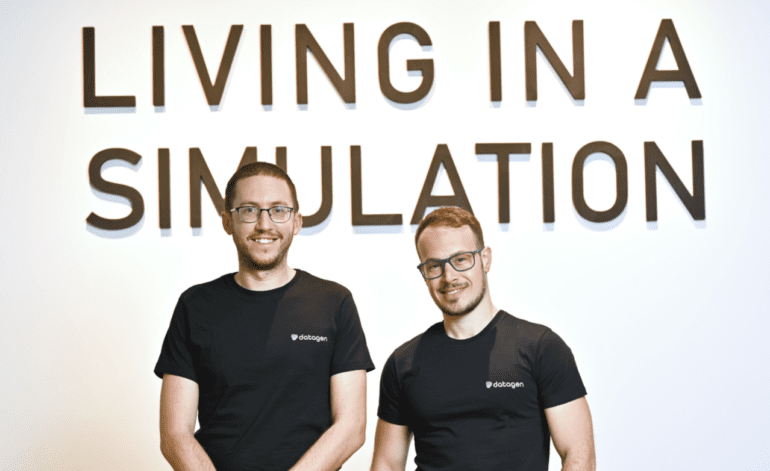TL;DR:
- Datagen, an AI startup, faces closure after significant workforce reductions.
- The company let go of most employees due to the rise of generative AI technologies.
- Initial promise was overshadowed by products like ChatGPT and Bard, rendering Datagen’s solution less relevant.
- Talks with Meta for acquisition fail, leading to a small retained team exploring new directions.
- $50 million Series B funding in 2022 brought total funding to $70 million.
- Datagen, founded in 2018, developed a data simulator for AI model construction.
- Simulator accelerates AI training in computer vision by creating 3D simulations.
- Challenging times ahead as a dedicated team strives to reshape Datagen’s future.
Main AI News:
The once-promising AI startup Datagen, finds itself on the brink of closure following a series of strategic workforce reductions. After a significant downsizing effort just three months ago, the company has now taken the difficult step of parting ways with nearly all of its remaining employees, leaving only a lean team of ten professionals.
Datagen initially hailed for its pioneering work in artificial intelligence, has faced tumultuous times, grappling with the rapid advancement of generative AI technologies. What was once a beacon of innovation has struggled to maintain its relevance in an evolving landscape where solutions like ChatGPT and Bard, along with other Gen AI offerings, have gained dominance.
It was only in May of last year that Datagen proudly boasted a robust workforce of 110 employees. However, the company quickly recognized the imperative to reinvent itself in the wake of disruptive products such as ChatGPT and Bard. The emergence of these advanced AI platforms rendered Datagen’s previous solution less impactful, triggering a wave of staff reductions. Moreover, the company engaged in discussions with Meta, a potential acquirer, to salvage its position in the market. Regrettably, these negotiations failed to materialize into a concrete deal. As a result, Datagen has been compelled to maintain a modest team, entrusted with the task of charting a fresh course for the company’s future.
In a prior feat, Datagen had secured an impressive $50 million through a Series B funding round in March 2022. This financial boost elevated the company’s total funding to an impressive $70 million. Founded in 2018 by the visionary duo of Technion graduates, Ofir Chakon and Gil Elbaz, Datagen emerged as a trailblazer with its innovative data simulator. This simulator, designed to expedite the development of artificial intelligence models, drew the attention of investors and partners alike.
The notable funding round was spearheaded by Scale Venture Partners, a leading player in the investment landscape. The initiative also garnered support from existing investors, including TLV Partners, Viola Ventures, and Spider Capital, reflecting the industry’s initial enthusiasm for Datagen’s potential.
Central to Datagen’s offerings is its state-of-the-art simulator, which harnesses synthetic information to propel the training of artificial intelligence models in the domain of computer vision. The company’s solution ingeniously constructs a dynamic three-dimensional simulation of reality, facilitating the swift provisioning of image data required for the training of machine learning systems dedicated to AI tasks in the visual realm. This strategic approach positions Datagen at the forefront of innovative solutions, where marrying simulation and AI training has the potential to redefine the future of artificial intelligence applications.
Conclusion:
The challenges faced by Datagen underscore the rapid evolution of the AI landscape. The company’s struggle to maintain relevance amidst the ascent of generative AI exemplifies the intense competition and disruptive nature of this sector. The failure of acquisition discussions and the subsequent decision to retain a small team for reinvention highlights the importance of adaptability in the face of dynamic technological shifts. This situation serves as a cautionary tale for startups in the AI field, emphasizing the necessity of continuous innovation to thrive and survive in a market characterized by constant transformation.

